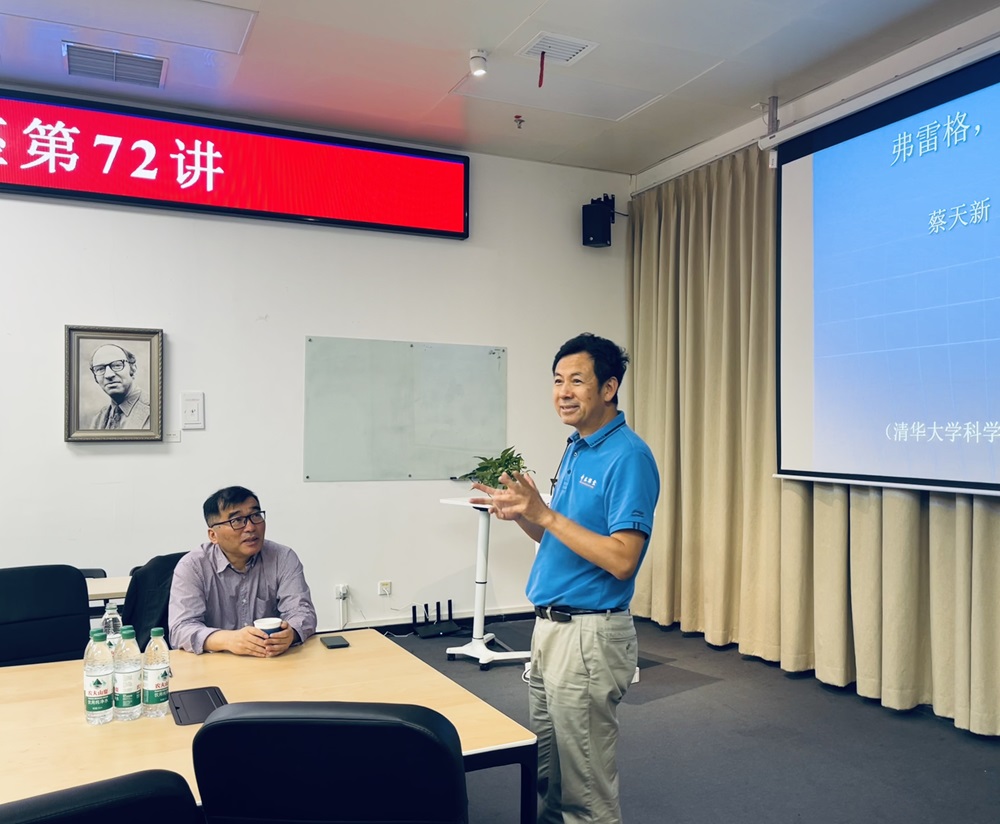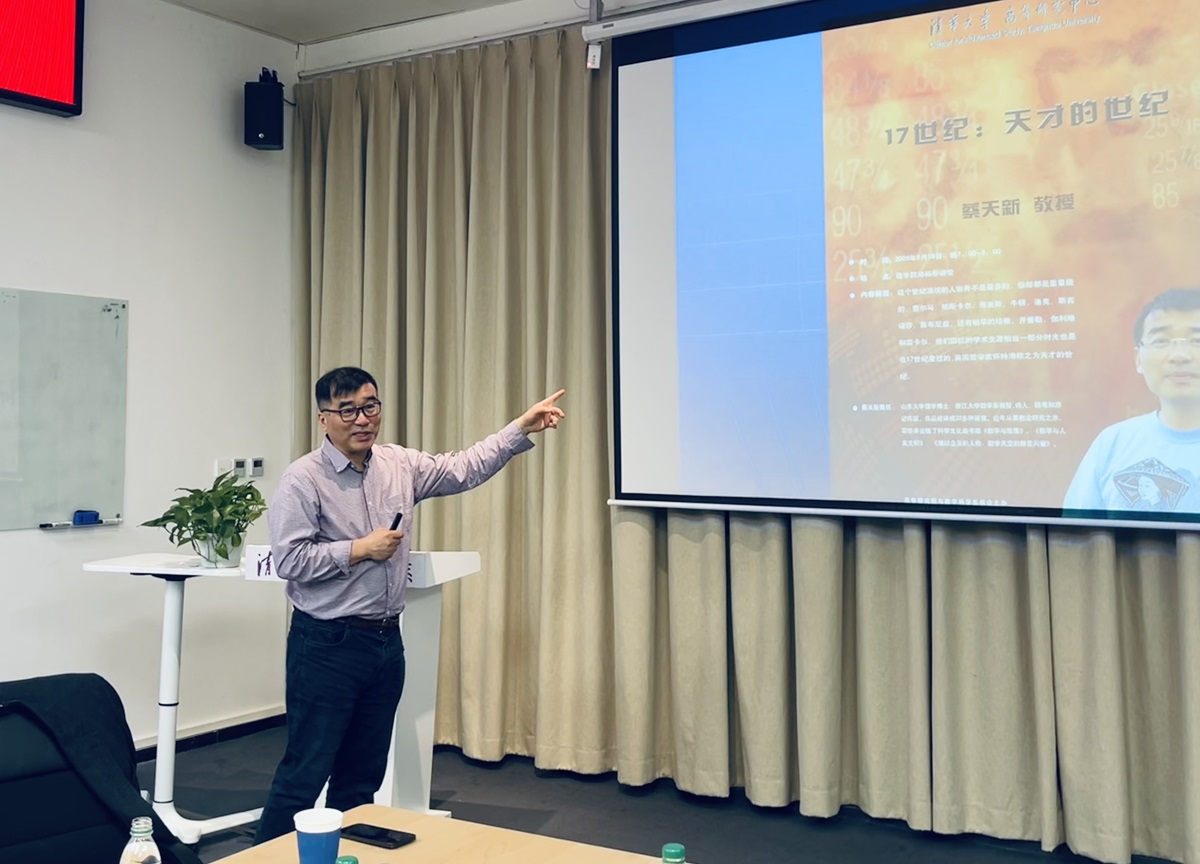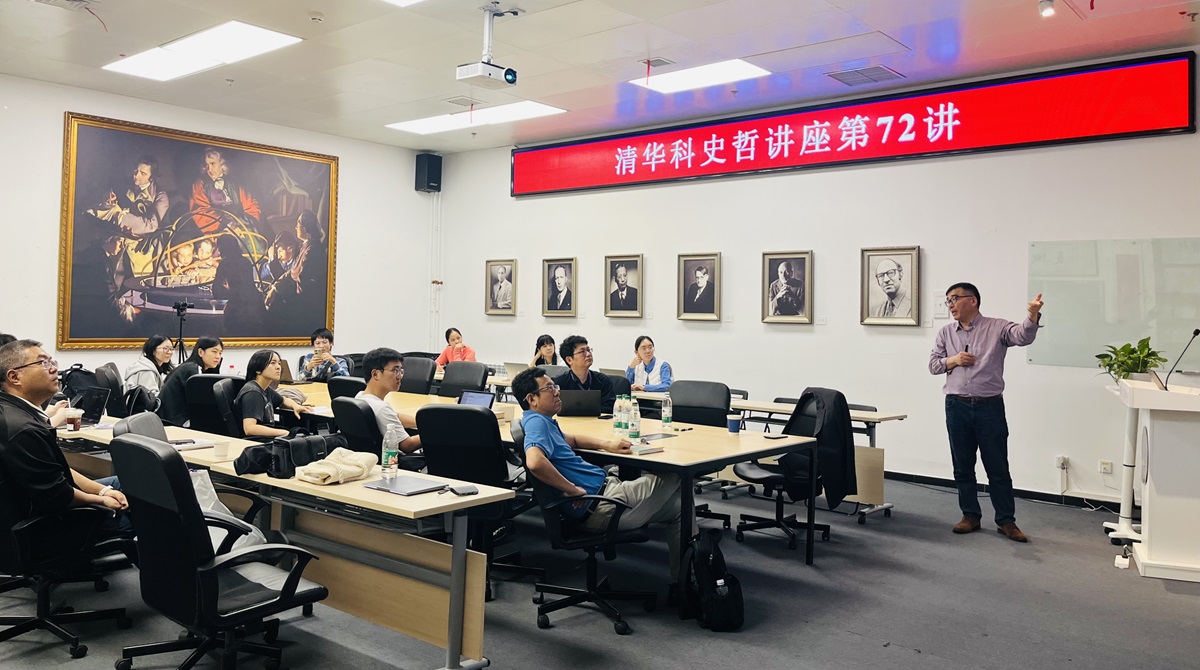On the afternoon of September 27, 2024, Tsinghua University’s Department of the History of Science hosted the 72nd session of the THU History and Philosophy of Science Lecture Series in Room B206 of the Mengminwei Humanities Building. Chaired by Professor Wu Guosheng, the lecture featured Professor Cai Tianxin from the School of Mathematics at Zhejiang University, who spoke on "Frege, Logic, and Truth."

Professor Cai began by recalling a lecture he delivered at Tsinghua’s Institute for Advanced Study in June 2009, weaving together his research and field visits to trace Frege’s life journey, academic development, philosophical contributions, and lasting legacy. His presentation unfolded in four parts:

Göttingen and Hanover:
These twin cities in Lower Saxony, Germany, share deep historical, cultural, and geographical ties. Hanover—once the fourth-largest German state, an Electorate of the Holy Roman Empire, later an independent kingdom, and finally a Prussian province—lies just 20 kilometers north of Göttingen. Both flourished as centers of learning: Göttingen through its world-renowned university, and Hanover via institutions like Leibniz University Hannover. While Hanover served as the capital of the Kingdom of Hanover and remains an economic hub, Göttingen built its identity around research and education. Their proximity, linked by efficient rail and road networks, fostered mutual cultural and scientific exchange.
The Göttingen Mathematical School:
This influential community (late 19th to mid-20th century) revolutionized multiple branches of mathematics. Felix Klein’s arrival in 1886 marked its founding; he elevated research standards and attracted brilliant minds. David Hilbert, joining in 1895, became its cornerstone, reshaping mathematics through his work in geometry, number theory, and logic. Though not formal members, Carl Friedrich Gauss and Bernhard Riemann laid foundational traditions through their Göttingen legacies. Frege, too, remained outside the core circle, but his work intersected methodologically with the school’s thinkers, indirectly influencing their intellectual trajectory.
Frege’s Life and Education:
Gottlob Frege (b. November 8, 1848, Wismar) grew up in a Lutheran pastor’s family—an environment that shaped his philosophical outlook. He studied mathematics, physics, and chemistry at the University of Jena before shifting to philosophy. After earning his doctorate at the University of Göttingen in 1873 with a thesis on mathematical philosophy, he returned to Jena as an unsalaried lecturer (1874). Appointed full professor in 1895, he remained there until his death on July 26, 1925. Despite limited recognition in his lifetime, Frege’s logical system and philosophical insights later became pillars of modern logic, philosophy of mathematics, and analytic philosophy.
Frege’s Major Works and Ideas:
- Begriffsschrift, eine der arithmetischen nachgebildete Formelsprache des reinen Denkens (Conceptual Notation: A Formal Language of Pure Thought Modeled on Arithmetic, 1879):
Introduced quantifier notation and formalized mathematical reasoning, founding modern symbolic logic. - Die Grundlagen der Arithmetik (The Foundations of Arithmetic, 1884):
Advocated logicism—the reduction of mathematics to logic—positioning it alongside intuitionism and formalism as a foundational school. - Über Sinn und Bedeutung (On Sense and Reference, 1892):
Proposed the distinction between sense (Sinn) and reference (Bedeutung), resolving puzzles about identity statements. - Grundgesetze der Arithmetik (Basic Laws of Arithmetic, Vol. I 1893, Vol. II 1903):
Attempted to derive arithmetic from pure logic; famously undermined by Russell’s paradox (1902). - Collaboration with Alfred North Whitehead on Principia Mathematica (completed 1913):
A three-volume landmark extending Frege’s logicist program.
Despite challenges to logicism, Frege’s analysis of language and logic remains a vital resource for philosophy and mathematics.
Concluding his talk, Professor Cai highlighted grassroots commemorations of Frege in Wismar and Bad Kleinen, quoting the logician’s epigram:

"A good mathematician is at least half a philosopher; a good philosopher is at least half a mathematician."
The Q&A session explored themes like experience vs. meaning, philosophical versus scientific objects, pure versus empirical intuition, mathematical foundations, and parallels between mathematics and poetry. Professor Wu Guosheng presented a commemorative gift to Professor Cai on behalf of the department, concluding the lecture.
Documented by: Gao Yindi
Reviewed by: Shen Yubin

